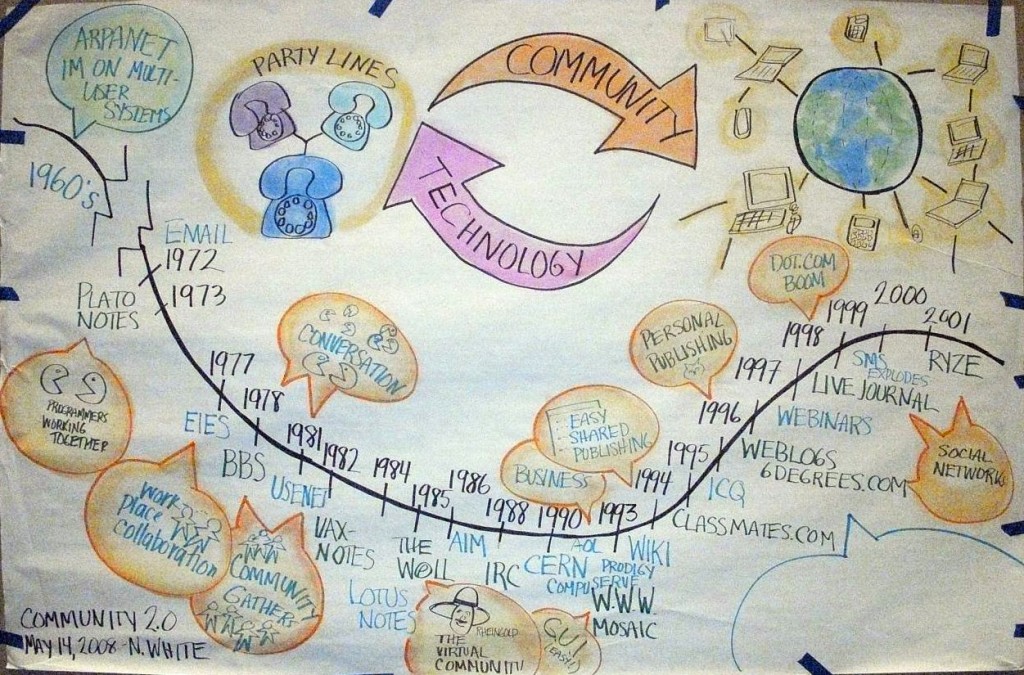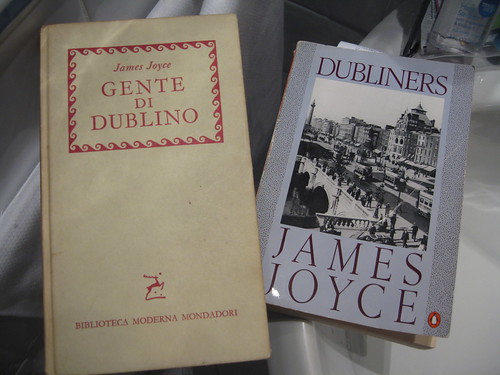Joitkse . Finds the best backchannel video (along with her pearls of wisdom.) She is reading The Backchannel (by Cliff Atkinson), which is patiently sitting in my pile of books. Perhaps I should read it before I do a keynote on the 22nd, eh?
What is YOUR history of online facilitation?
 In just over a week I’ll be in Ft. Worth, Texas, opening Monday’s session of the Elearning 2010 Conference. My topic is “Online Facilitation 13 Years On: What We Learned and What Do We Need to Learn?” Despite all best intentions, I’m just now getting concrete on what I want to do in this more traditional ‘podium’ opportunity. There are so many things we could talk about. So I’m wondering, what is YOUR history of online facilitation? What are the key turning points for you? And what do you see in the future?
In just over a week I’ll be in Ft. Worth, Texas, opening Monday’s session of the Elearning 2010 Conference. My topic is “Online Facilitation 13 Years On: What We Learned and What Do We Need to Learn?” Despite all best intentions, I’m just now getting concrete on what I want to do in this more traditional ‘podium’ opportunity. There are so many things we could talk about. So I’m wondering, what is YOUR history of online facilitation? What are the key turning points for you? And what do you see in the future?
The fabulous ScOPE online community asked these sorts of questions in a 2007 online event facilitated by my friend Nick Noakes, and it was fun to go back and reread them. (Link here, or SCoPE_ Seminars_ Online Fac. PDF)
Here is a little context from me:
I have been living, breathing, obsessing about online facilitation since 1996-97 when I fell down the online community rabbit hole in Howard Rheingold’s Electric Minds. I sensed something important, and sought to give voice to that intuition over the past 14 years. (Funny, when we set on the title, it was 13 years. oops!) Using only my offline facilitation experience, I dove blindly in, sometimes flying, sometimes crashing and burning.
Over the years I started to write about what I was learning and point to the giants upon whose shoulders I stood. Online, that meant among others, Peter and Trudy Johnson Lenz, Jessica Lipnack and Jeffrey Stamps (for their virtual team pioneering work), Lisa Kimball and the folks at Metanet, Liz Rykert, Howard Rheingold and all of the hosts and facilitators at Electric Minds (old and newer), The Well and the myriad of other communities I have belonged to. Offline I built upon the core facilitation knowledge of folks like Sam Kaner, Peggy Holman, Roger Schwarz, Juanita Brown, Harrison Owen, and many, many others.
In 2004, I took a stab at a more academic review entitled A Short History o f Online Facilitation.
Things have changed. The way technology enables us to be together has dramatically expanded what it means to “be together” and thus our practices of being together. Shifts have happened in online facilitation of communities and networks, for learning, teams, communities of practice, for advocacy and action, for games and play. The horizon is so much broader.
Where to start the story…
Where to imagine where it is going?
Your thoughts?
Monday Video: Students Helping Students
Kindness! Another gem from Michael Wesch’s students, with his amazing touch of a true teacher. After you look at the video, go to the blog post and read about how it happened. Students Helping Students video.
Reading Joyce’s Dubliners With Imaginary Friends
 Dear Readers
Dear Readers
As you know, I am curious and entranced with electronically mediated communications, relationships, work and learning. You may NOT know that I’ve never read James Joyce beyond snippets. So when the always amazing Barbara Ganley suggested I join in this February project reading Joyce’s Dubliners with a group of people – some of whom I know, some of whom I’ve met and some of whom are total mysteries to me, I said, sure, why not!
Chris Lott is our distributed from the side ring leader, helping us stake out our loosely defined territory. Reading Joyce’s Dubliners … Join In the Fun! – Ye Olde Motley Readers
The tag is #motleyread
If you want to listen instead of read, check this out.
There are plans afoot to use some postcard art, paper and snail mail. That inspired me to stop at a used book stall here in Rome, where I am working for the week, and find a copy of Joyce’s Dubliners in Italian. Which of course, I can’t read Italian. I was going to cut it up and make post cards for each chapter, but now I’m having pangs about cutting up a book.
I am two short stories in, still chewing. I won’t be posting my reading log here on the blog, but instead either in fragments, tagged out in cyberspace, on paper (to be scanned when I get home) or just in my mind. But if you want to read along, join us!
Why Networks Matter (emergency or not)
Watch this video from John Engle, someone I know peripherally from the Open Space facilitators network, about the work he is doing in Haiti, post earthquake. John’s organization, Haiti Partners, is not a relief organization. They work long term on education. Hear how they are reframing their work, tapping their networks and learning what to do in a difficult, emergent situation. Learning. Connecting. Shifting. Adapting.
If you need a place to donate, consider organizations like Haiti Partners – not just today, but in the coming months and years. Invest in a child’s education.
2 Weeks After Earthquake « HaitiPartners.org.
Watch the other videos from the past two weeks. Let’s learn together.